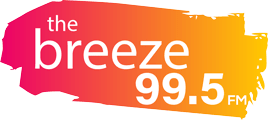(NEW YORK) — A number of medical experts and health care officials are concerned about a rise in medical misinformation following the announcement by Democrat Robert F. Kennedy Jr., an anti-vaccine activist, that he is running for president in 2024.
Kennedy, the son of former U.S. Attorney General Robert F. Kennedy, has become one of the most prominent faces of the anti-vaccine movement, according to experts. He is the founder of Children’s Health Defense, a nonprofit organization known mainly for its anti-vaccine efforts. The group was kicked off Instagram and Facebook last year for spreading misleading claims about vaccines and other public health measures.
During the COVID-19 pandemic, the organization’s revenues doubled to $6.8 million, according to filings made with charity regulators.
Kennedy’s bid for the presidency “puts science squarely on the ballot,” said Brian Castrucci, president of De Beaumont Foundation, a group dedicated to advancing public health policy. “His campaigns make the benefits of vaccines a question up for debate rather than settled science.”
“His campaign would platform a set of dangerous beliefs with the possibility of not only harming the health of the public but the health of our communities and economy as well,” Castrucci told ABC News. “We would have a candidate who each day would be spreading scientific misinformation and, in the process, legitimizing vaccine hesitancy and resistance.”
Kennedy, whose vaccine skepticism stretches back to around the early 2000s, has yet to hold any public presidential campaign events or mention his anti-vaccine stance as a presidential candidate. But some experts ABC News spoke with expressed concerns about his previous efforts to push conspiracy theories and misleading claims about COVID-19 and vaccines.
“His name carries a lot of weight,” Dr. Peter Chin-Hong, an infectious disease doctor at the University of California San Francisco, told ABC News. “Anybody who is a leader of our country needs to be a voice of reason and somebody who stands up for science and does not discredit science.”
Hong said that one of his concerns about Kennedy is his attitude toward public health infrastructure and the necessary funding health care institutions need for future public health emergencies.
“If you don’t believe in vaccines, you’re probably not going to be sympathetic to funding many arms of public health,” said Hong. “Money talks in a pandemic, and if you’re not going to put funding resources and money behind what should be done, the whole country is going to fall flat.”
Dr. Nick Sawyer, an emergency medicine physician in Sacramento who founded No License for Disinformation, a group of doctors who came together during the pandemic to call on state medical boards to take disciplinary measures against doctors spreading misinformation, said that Kennedy represents “a huge threat.”
“He’s lying to people about critical things that have to do with our nation’s children’s health,” Sawyer told ABC News. “The health effects are incredibly dangerous and have already shown to be incredibly damaging.”
Last year, Kennedy’s nonprofit organization criticized Sawyer’s group for pushing a California bill that would strip licenses from doctors who spread COVID-19 misinformation. In a blog post on the Children’s Health Defense website, the group said the bill would remove doctors’ medical licenses “if they express medical views that the state does not agree with.”
“On the national level, we must also stay vigilant against similar legislative proposals, and push back against phony front groups that promote this kind of medical tyranny,” the blog post said. “This includes the No License for Disinformation group.”
Dr. Elizabeth Glowacki, a health communication researcher at Northeastern University, told ABC News she is worried about Kennedy targeting marginalized communities, after he produced an anti-vaccine film about the dangers of vaccines aimed at Black and Hispanic people during the pandemic.
“There are some serious health consequences if people don’t have accurate information about vaccines, in particular communities that are underserved and that are marginalized — communities that already have a structure that prevents them from accessing vaccines and resources,” Glowacki said.
Last month, Castrucci’s group, De Beaumont, published a poll that found that nearly three in four physicians said medical misinformation has hindered their ability to treat COVID-19 patients.
According to the poll, 44% of physicians estimate that more than half the COVID-19 information they see, read and hear from patients is misinformation.
“We see [misinformation] continuing, if not gaining momentum,” Castrucci told ABC News.
Representatives for Kennedy’s presidential campaign did not respond to a request for comment from ABC News.
Copyright © 2023, ABC Audio. All rights reserved.





